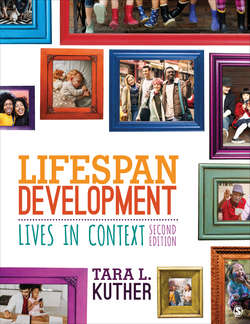Читать книгу Lifespan Development - Tara L. Kuther - Страница 61
На сайте Литреса книга снята с продажи.
Freud’s Psychosexual Theory
ОглавлениеSigmund Freud (1856–1939), a Viennese physician, is credited as the father of the psychoanalytic perspective. Freud believed that much of our behavior is driven by unconscious impulses that are outside of our awareness. As shown in Table 1.2, Freud believed we progress through a series of psychosexual stages, periods in which unconscious drives are focused on different parts of the body, making stimulation to those parts a source of pleasure. Freud explained that the task for parents is to strike a balance between overgratifying and undergratifying a child’s desires at each stage to help the child develop a healthy personality with the capacity for mature relationships throughout life. Notably, Freud did not study children; his theory grew from his work with female psychotherapy patients (Crain, 2016).
In part because of its heavy emphasis on childhood sexuality, Freud’s psychosexual stage framework, especially the phallic stage, is not widely accepted (Westen, 1998). Yet many of Freud’s ideas have stood up well to the test of time and have permeated popular culture. These ideas include the notion of unconscious processes of which we are unaware, the importance of early family experience, and the role of emotions in development (Bargh, 2013). Another reason why Freud’s theory tends to be unpopular with developmental scientists is that it cannot be directly tested and is therefore not supported by research (Miller, 2016). How are we to study unconscious drives, for instance, when we are not aware of them?
